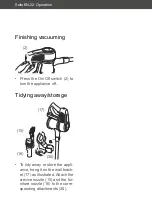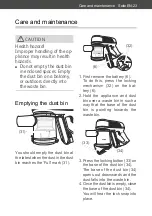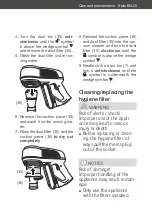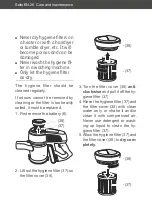
Disposal and waste prevention Seite EN-35
Disposing of old
electrical devices in an
environmentally-friendly
manner
Electrical appliances con-
tain harmful substances
as well as valuable re-
sources.
Every consumer is therefore re-
quired by law to dispose of old
electrical appliances at an au-
thorised collection or return point.
They will thus be made available
for environmentally-sound, re-
source-saving recycling.
You can dispose of old electrical
appliances free of charge at your
local recycling centre.
Contact your dealer directly for
more information about this topic.
Batteries and rechargeable
batteries
This symbol means that
batteries and rechargea-
ble batteries must not be
disposed of with other
household waste.
Consumers are required by law to
bring all batteries and rechargea-
ble batteries, regardless of wheth-
er they contain harmful substanc-
es*) or not, to a collection point
operated by their communal au-
thority or borough or to a retailer,
so that they can be disposed of in
an environmentally friendly man-
ner and so that valuable resourc-
es (e.g. cobalt, nickel or copper)
can be recovered.
Batteries and rechargeable batter-
ies can be returned free of charge.
Some of the possible contents
(e.g. mercury, cadmium and lead)
are toxic and, if improperly dis-
posed of, can have adverse ef-
fects on the environment. Heavy
metals, for instance, can have
detrimental health effects on hu-
mans, animals and plants and ac-
cumulate in the environment and
food chain, and then enter the
body indirectly through the con-
sumption of food.
There is a high risk of fire with
old lithium batteries. Special care
must therefore be taken to prop-
erly dispose of old lithium batter-
ies and rechargeable batteries.
Improper disposal can also lead
to internal and external short cir-
cuits due to thermal effects (heat)
or mechanical damage. A short
circuit can lead to a fire or an ex-
plosion and have serious conse-




































